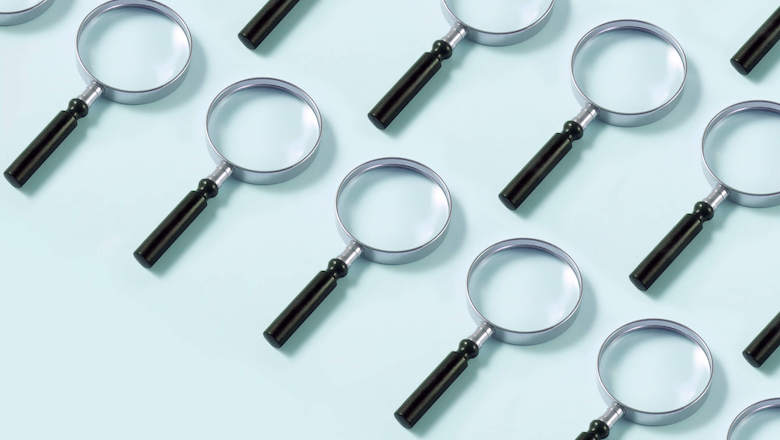As I mentioned in the OP, I thought the linked article was decent, but lacking on some points. I was on my phone when I posted it, so I wasn't able to really give a long form comment on it. I'll do that now...
Nick Giambruno said:
...
Bitcoin is an entirely new asset people are adopting as money ...
This is more a quibble than addressing an important point, but I think it's misleading to say that "people are adopting Bitcoin as money". Sure, it might be technically correct as there are a few Bitcoin enthusiasts who actually spend Bitcoin as money, but I'm guessing the percentage of Bitcoin owners that primarily hold or trade Bitcoin as a speculative investment asset is likely north of 95%.
Nick Giambruno said:
...
Money is simply something useful for storing and exchanging value. That’s it.
...
Let's get it right:
Dallas fed said:
...
Money functions as (1) a medium of exchange, (2) a unit of account and (3) a store of value.
...
Medium of Exchange. A medium of exchange is anything that is traded broadly for goods and services in an economy. ...
Unit of Account. A unit of account is simply the unit by which the prices of all other items are quoted. ...
Store of Value. The third use of money is as a store of value. When people are paid in money, they expect to be able to spend that money on purchases now and in the future. For money to be a good store of value and allow people to carry earnings into the future, it must be durable and maintain most of its purchasing power.
...
h/t:
https://www.pmbug.com/threads/characteristics-of-money.3904/
Bitcoin does not currently satisfy any of the threee functions of money. It theoretically could in the future, but it doesn't right now. It's value is too volatile and of course, legal tender laws and capital gains and sales taxes hinder adoption for broad trade (
same as with gold/silver coin).
Italics added by me:
Nick Giambruno said:
...
What makes gold attractive as money?
...
Gold has a set of unique characteristics that make it suitable as money.
Gold is durable, divisible, consistent (uniform), convenient (portable), scarce, and most importantly, the “hardest” of all physical commodities.
...
He got 5/6 on the characteristics of money (he missed acceptable - "hardness" is not one of the characteristics separate from durability).
Dallas Fed said:
...
But what features does your money need? Six characteristics have been identified: Money must be durable, portable, divisible, scarce, uniform and acceptable.
...
The "acceptable" characteristic, for gold, bitcoin or any challenger to fiat money has been subverted by legal tender laws and capital gains and sales taxes. It's an artificial barrier that government has the power to change.
Zimbabwe has recently made gold coin legal tender and
El Salvador has made Bitcoin legal tender. Ron Paul used to advocate a
Competing Currencies bill that would remove the barriers for gold and silver bullion (putting them on an even footing with fiat).
Nick Giambruno said:
...
Bitcoin shares many of the same attributes of gold that make it attractive as money. That’s why it is often referred to as “digital gold.”
Like gold, Bitcoin does not have counterparty risk, and nobody can arbitrarily inflate the supply.
...
While it is true that Bitcoin doesn't have "direct" counterparty risk - no entity (currently) owns/controls the blockchain, it's disingenuous to claim that it has the same or similar risk level as gold.
Bitcoin has an inherent "indirect" counterparty risk. To access or use Bitcoins requires both a functioning internet and a a functioning power grid. Internet access can be restricted/interrupted by governments, ISPs or force majure (router/server hubs going offline). A functioning power grid can go down for many reasons (natural disaster, extreme weather [temperatures] or just overload from demand). No one can rely on having access to trade Bitcoin if shit hits the fan (like when a hurricane blows through knocking out power for weeks and flooding roads -
been there, done that, seen how thin the veneer of civilization can be).
Even assuming that the power grid and internet stay functional and accessible,
Bitcoin is still vulnerable to a 51% network takeover. Counterparty risk to the blockchain could manifest at some point in the future.
Nick posits that Bitcoin and gold share many of the attributes of gold, but in practice, the "convenient" attribute needs an asterisk. Bitcoin is both more and less portable than physical bullion. Bitcoin isn't a physical thing and thus, you can be said to be carrying it with you everywhere you go - even across borders. In this respect, it is much more portable than physical bullion. However, to faciliate access to one's Bitcoin, one has to either remember or document password(s) or seed phrases. This is not so convenient - especially in a world where governments can compel folks to produce documents where passwords are written down. So either remember your long, random character passwords or write them down and risk discovery.
It’s a common crypto problem: Because people tend to forget the private keys that give them access to their crypto investments, countless coins — e.g. Bitcoin, Ethereum, Litecoin, Dogecoin, Solana — have been lost. As much as 20% of the entire supply of Bitcoin might be lost owing to lost private keys.
...
About 20% of Bitcoin is lost forever, by some estimates. But if you’ve lost yours, it might be possible to recover lost Bitcoin or a lost bitcoin wallet. Read on to find out more.

www.sofi.com

 internationalman.com
internationalman.com




